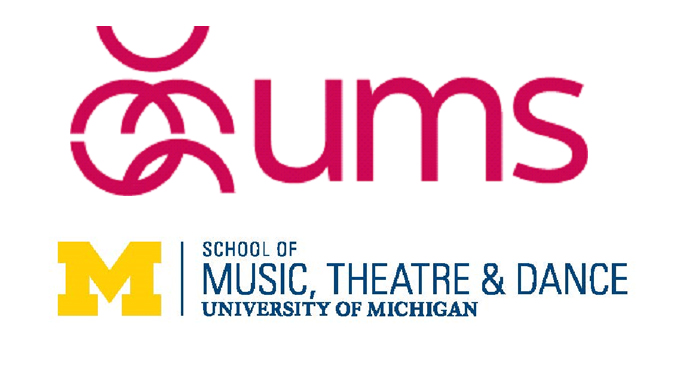Shakespeare’s Julius Caesar
Théâtre National de Bretagne
Created in conjunction with American Repertory Theater
Arthur Nauzyciel, director
Friday, April 5 // 7:30 pm
Saturday, April 6 // 7:30 pm
Power Center

French director Arthur Nauzyciel revives his production of Julius Caesar, first created for Boston’s influential American Repertory Theater in a US election year 10 years ago. Now artistic director of the Théâtre National de Bretagne, Nauzyciel highlights the continuing relevance of Shakespeare’s great political tragedy. The production features costumes and design that evoke the era of JFK, a live jazz trio, and provocative staging that refocuses the action so that the tyranny unfolds as the dream of a minor character, Brutus’ slave Lucius.
One of the greatest theatrical studies of tyranny, revolution, and civil war, Julius Caesar is also a highly personal play — a breathless, gripping portrayal of friendships and alliances torn apart by political ambition and the intoxicating effects of power.
RELATED EVENTS
Talk: On Shakespeare’s Roman Trails
Friday, April 5 // 4 pm // Michigan League Hussey Room
How do we address Shakespeare’s Roman plays to contemporary audiences? We can make our productions strongly, even aggressively, about our politics rather than Rome’s or early modern England’s. But one area of Shakespeare marketing that Shakespeare cultural criticism has almost completely ignored is the film — and now also the theater — trailer. Trailers are everywhere. No longer only in the movie theater, they fill our TVs and are all over the web. Scholar Peter Holland considers how they conceptualize, and invite us into, Shakespeare’s Roman plays.
Post-Performance Artist Q&A
Fri, Apr 5 only
Must have a performance ticket to attend.

Takács Quartet
Anthony McGill, clarinet
Sunday, April 7 // 4 pm
Rackham Auditorium
The Takács Quartet, now entering its 44th season, returns to Ann Arbor for its 25th appearance since its 1984 UMS debut. Based at the University of Colorado in Boulder, the ensemble includes Edward Dusinberre and Harumi Rhodes (violins), Geraldine Walther (viola) and András Fejér (cello). They are joined by New York Philharmonic principal clarinet Anthony McGill.
The Takács Quartet was formed in 1975 at the Franz Liszt Academy in Budapest by Gabor Takács-Nagy, Károly Schranz, Gabor Ormai and András Fejér, while all four were students. The quartet first received international attention in 1977 and made its North American debut tour in 1982. After several changes of personnel, the most recent addition is second violinist Harumi Rhodes, following Károly Schranz’s retirement in April 2018. The Quartet last appeared at UMS in the 2016-17 season, presenting the complete Beethoven String Quartets over six performances.
PROGRAM
Haydn
String Quartet in G Major, Op. 76, No. 1
Shostakovich
String Quartet No. 4 in D Major, Op. 83
Brahms
Clarinet Quintet in b minor, Op. 115
RELATED EVENTS
Pre-Performance Talk: The Sense of Endings
Sunday, April 7 // 3 pm // Rackham Amphitheatre (4th floor)
U-M Professor of Musicology Steven Whiting reveals the surprising harmonic and textural connections between the Haydn, Brahms, and Shostakovich works on the Takács program, unraveling how each represents a distinctive take on the problem of ending.
Exclusive Presenting Sponsor: The Ilene H. Forsyth Chamber Arts Endowment Fund
Media Partners: WRCJ 90.9 FM and WGTE 91.3 FM












